| Bombardier Innovia APM100 (C801) | |
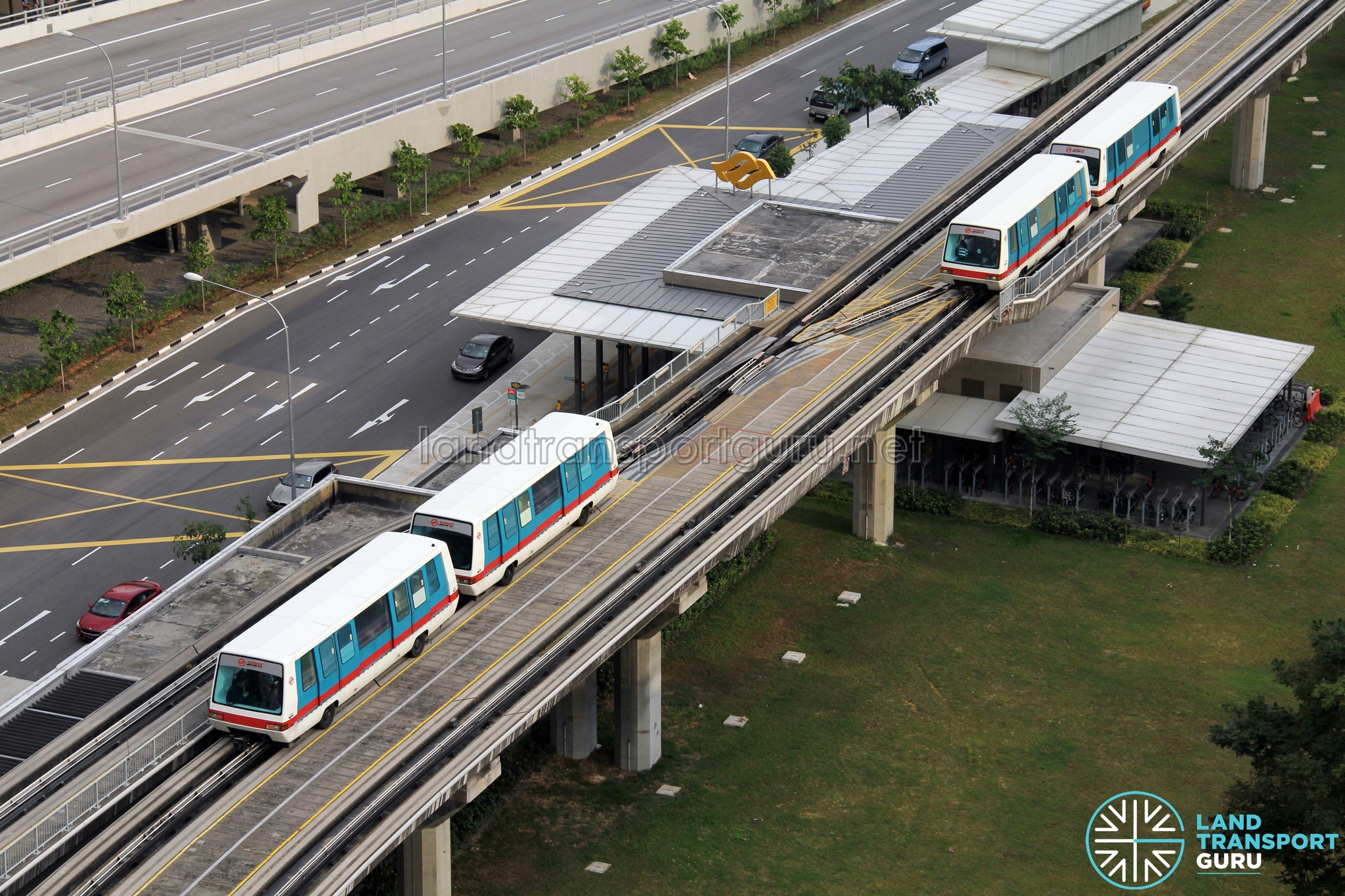 |
|
| In service | November 1999 – September 2025 |
| Manufacturer | Adtranz (now Bombardier Transportation) |
| Constructed | 1997 – 1999 |
| Number built | 19 Vehicles (19 trainsets) |
| Formation | 1 motor car per trainset |
| Fleet number | 101 – 119 |
| Operator | SMRT Trains |
| Depot | Ten Mile Junction |
| Line served | Bukit Panjang LRT Line |
| Technical Data | |
| Car body | Aluminium |
| Doors | 4 per car |
| Electrification | 600V AC power rail |
| Track gauge | Central guideway with rubber tyres |
The Bombardier Innovia APM 100 (C801) was a rubber-tyred automated people mover (APM) train which operated on the Bukit Panjang LRT (BPLRT). Entering service in 1999, these were the Bukit Panjang LRT Line’s first generation of rolling stock, capable of operating in single and double-car formations.
Nineteen trainsets were procured and manufactured from 1997 to 1999 by Adtranz in Pittsburgh, Pennsylvania, United States of America. They were the first driverless trains in Singapore.
Retirement of these trains started in November 2023 and fully completed in October 2025. The rolling stock was last spotted in service on 12 September 2025.
Background
Awarded to Adtranz as the CX-100 in November 1998, Contract 801 (C801) for the procurement of rolling stock called for 19 single-car trains ahead of the opening of the Bukit Panjang LRT. The first system of its kind in Singapore, the driverless Light Rail Transit (LRT) extended the reach of the MRT network into the housing estates, running on its dedicated grade-separated guideway. Trains are rubber-tyred for minimized operating noise within built-up areas.
When Adtranz was acquired by Bombardier Transportation in 2001, the CX-100 was later renamed the Innovia APM 100. Trains are capable of operating as a single car or coupled together for double-car operations.
The trains were built as part of Bombardier’s INNOVIA family of APM trains. They are guided by a central guideway and draw power from a 600V AC power rail embedded within the guideway. Operating on Bombardier Transportation’s CITYFLO 550 system, these trains are fully automated (ATO GoA 4) and do not require an attendant on board.
History
The first trains entered revenue service on 6 November 1999 with the full opening of the Bukit Panjang LRT. In an early trial, windscreens that cut down glare and heat transfer were trialled and eventually rolled out to the whole fleet. Media screens, which were fitted to some cars and played advertisements, were eventually removed.
In 2015, cameras were installed on the under-frame of train cars to better monitor the alignment and contact between the train car’s current collector shoes and power rails. These would also be used to detect the causes of any misalignments so that appropriate preventive measures can be taken.
Current Design
The exterior of C801 trains are white for the front and rear ends, and turquoise for the sides, with a single red band wrapping around the train. Prior to 2005, the old livery had two dark turquoise bands where the red band is presently located. Additionally, large viewing windows on all sides offer a panoramic view of the surrounding area. Smart glass is used for the side-facing windows, which turn translucent within 6 metres of residential buildings.
All C801 trains have four wide-opening doors, two on each side. The interior features longitudinal seating in a turquoise colour scheme. At the ends of every car, an equipment housing offers a flat platform for additional seating. Trains were also fitted with a Travel Information Displays, which are LED text displays located above every door.
In an emergency, the doors can be opened for passengers to evacuate onto the guideway. Within the cabin, Intercom Units and Emergency Next Station Stop buttons enable passengers to speak with staff or stop the train at the next station in an emergency.
Train Formation
Trains can be formed of either one car, or two cars coupled together. They are not cross-coupled with C801A trains. Every car is identified by a three-digit number ranging from 101 to 119, i.e. Car 101, Car 102 and on to Car 119. All sets were built by Adtranz.
Decommissioning
Main Article: Decommissioning of Bukit Panjang LRT trains (C801)
As part of the Bukit Panjang LRT Overhaul, the 19 C801 vehicles would all be retired and replaced by Alstom C801B trains.
All trains were decommissioned by 18 October 2025, with the lifting down of the last remaining C801 train (Car 102).
Gallery:
External Links & References
Back to Trains
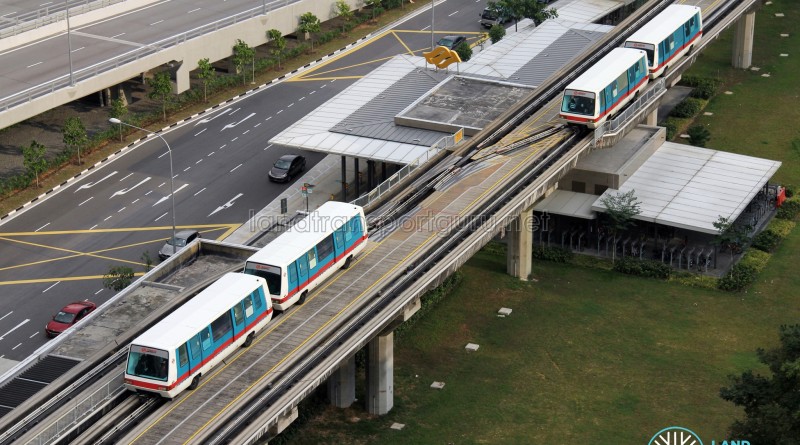
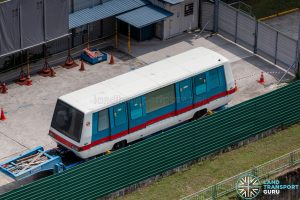
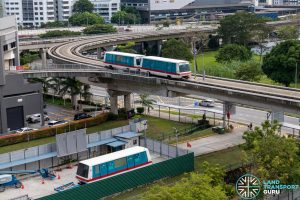
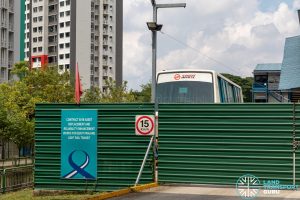
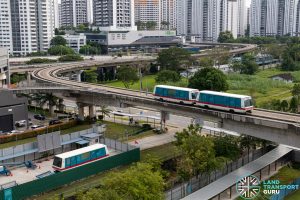
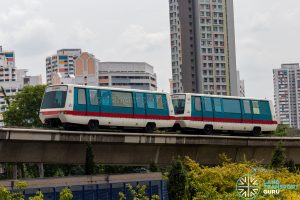
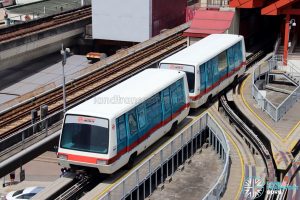
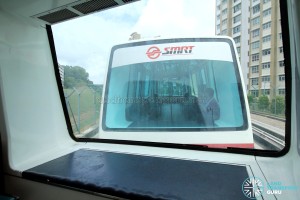
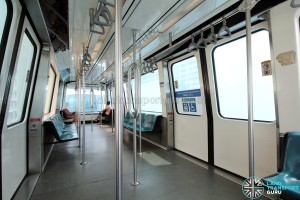
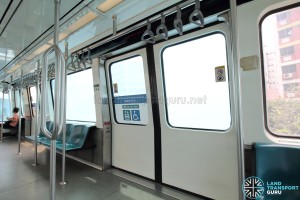
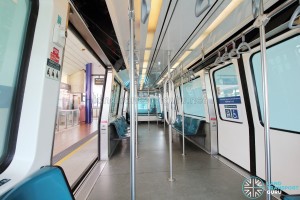
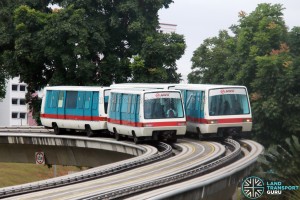
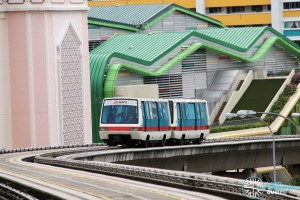
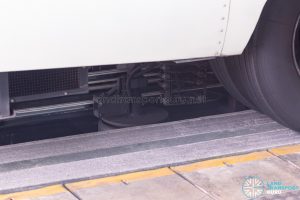
Looks like it’s the end of an era, as the last two C801 cars were last spotted in service on 12 Sep 2025, consisting of cars 102 and 111. They have not re-entered service as of 15 Sep 2025 during peak hours.
The third C801 (113) was brought down on 19 October 2024.